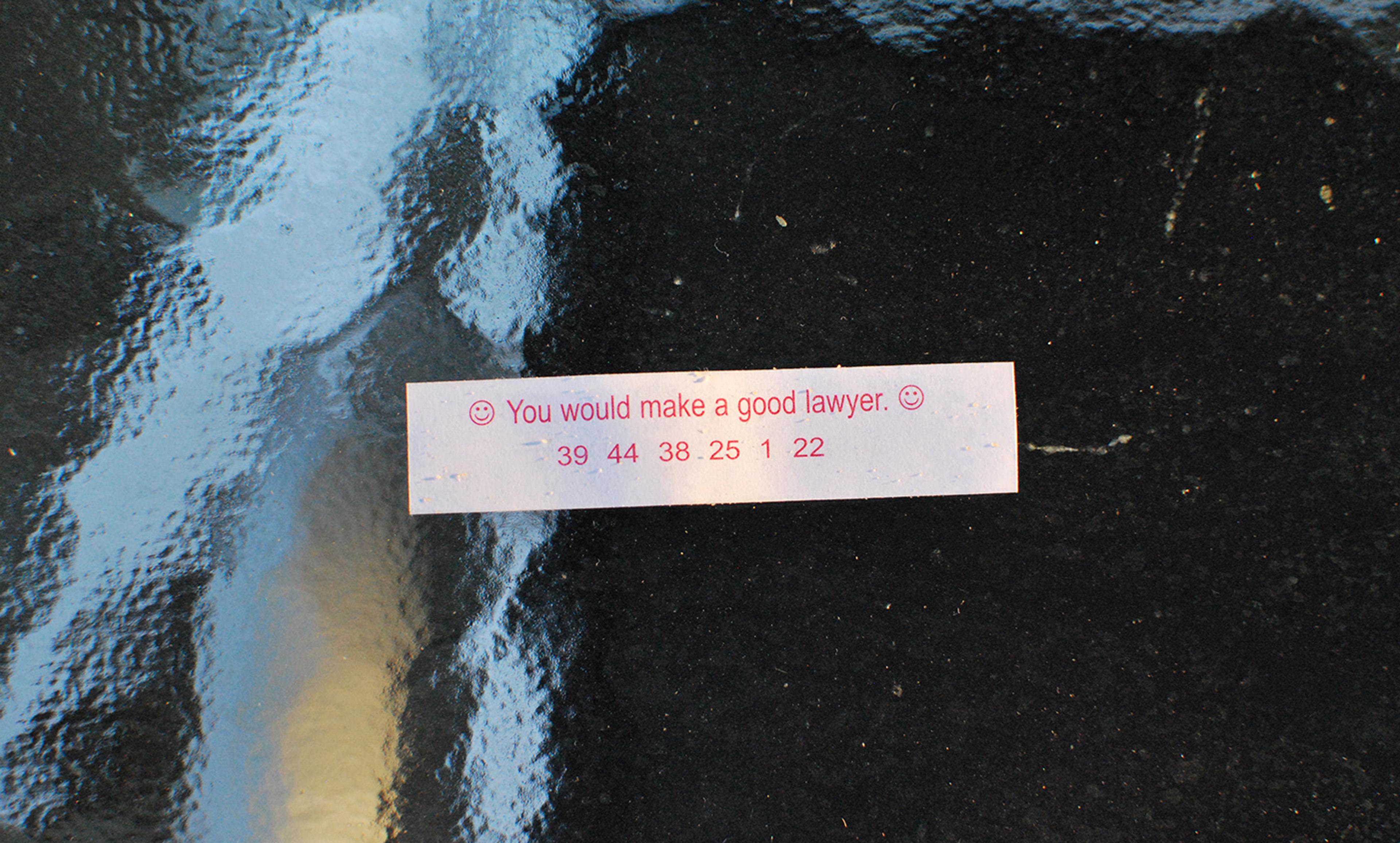slgkgc/Flickr
Would you like to stop paying taxes? Just renounce your 14th Amendment United States citizenship and claim ownership of the secret cestui que (beneficiary) trust that the US government created in your name on the day that you were born. Credit card debt? No problem, the trust is flush with millions or billions of dollars that you can use, just as soon as you establish ownership of your verified birth certificate and the corporate entity that has your name – but in all-capital letters.
These are some of the claims advanced by the self-styled experts who insist that everything you know about the legal system is wrong. These days, we are distressingly familiar with alternative, conspiracy-theory versions of science and medicine. Less well-known is the legal version of this phenomenon, not as visible as creationism or anti-vaccine activism but in many ways as destructive. Just ask the residents of Harney County, Oregon, who recently saw militants occupying the Malheur Wildlife Refuge emboldened by ‘judges’ and ‘citizen grand juries’ who had less to do with actual law than fantasy football does with the US National Football League.
Pseudolaw resembles pseudoscience in both its methods and applications. Believers are typically intelligent and motivated, and capable of constructing complex edifices that sound superficially credible. A talented snake-oil salesman pitches miracle cures based on things such as DNA and nutraceuticals; likewise, pseudolegal gurus deal in tax relief or other schemes based on similarly serious-sounding concepts such as jurisdiction and legal personhood. Either way, believers feel more in control over forces that otherwise make them feel powerless – illness or the US Internal Revenue Service (IRS), for example.
A typical pseudolegal scheme promises to help you avoid ever having to pay taxes by invoking some obscure legal principle, such as the (false) belief that the IRS has authority only over employees of the federal government, or that spelling your name in all-capital letters means the government can’t put you on trial. The application of these ideas typically involves complex rituals such as using precise punctuation and lowercase letters when writing your name (‘john-stephen :smith’) or putting particular stamps and endorsements on your birth certificate. Dubious but serious-sounding Latin is usually involved. Some pseudolegal gurus charge steep fees to teach these concepts; other true believers put them online for free.
This January, I watched pseudolaw being preached on the Conspira-Sea Cruise on the Mexican Riviera, a seminar at sea where conspiracy theorists spent a week dwelling on dubious alternatives to mainstream science and law. Sandwiched between Andrew Wakefield telling attendees that vaccines are responsible for an epidemic of autism and anti-GMO demagogues blaming Monsanto for the same thing, untrained self-professed legal gurus preached dangerous advice about handling lawsuits, taxes and mortgages. They cribbed their sermons from an enormous body of pseudolegal rhetoric that has been wreaking havoc under most skeptics’ radar for decades. Modern pseudolaw has roots in white supremacy and separatism and, although it was non-violent and inclusive, the Conspira-Sea Cruise provided a venue for the old idea that the 14th Amendment applies differently to white and black people.
Most people who try pseudolegal arguments in court or with their creditors believe that they are adopting legitimate tactics, just as many believe that homeopathy is a serious tool for treating illness. That parallel is not surprising, as pseudoscience and pseudolaw have common roots in irrational thinking. They both appeal to people’s natural fondness for self-reliance and secret knowledge. The path from curiosity toward self-destruction probably starts for many with curiosity about strange but compelling ideas – what if some of it were really true, and what’s the harm in believing it when you aren’t sick or in legal trouble? When the cost of error is low, the fact that snake oil doesn’t work is not particularly relevant. But once the believer starts to rely on it in the real world, the spiral has begun.
Someone might decide to test the waters by putting off their taxes for a little while to see if it works. Law enforcement takes years to catch up with some cases, so at first the strategy seems successful. Meanwhile, back taxes, interest and fines grow to monstrous proportions. Kent Hovind, a creationist preacher who treated tax laws as he did biology textbooks, went a decade without filing personal tax returns. If he’d been caught right away, he’d have been slapped on the wrist. But by the time the law caught up with him, he was on the hook for more than a million dollars in forfeitures and restitution, and a decade in prison.
Of the three speakers on the Conspira-Sea Cruise who focused on legal and pseudolegal issues, two are currently under federal indictment. Both have unilaterally declared that third parties are their fiduciaries, apparently in the belief that if they’re convicted the ‘fiduciaries’ will go to jail; one chose his judge, the other his prosecutor. Neither strategy will work, but resorting to a make-believe solution can provide a feeling of relief – like a terminal patient indulging a quack cure. And the more they rely on these sorts of short-term tactics, the harder it is to ever walk away from them. A victim of this delusion has an incentive to double down, relying even more on irrational ideas rather than admitting that the sunk costs are irretrievable.
Because of that incentive structure, it is hard to push back against pseudolaw. The best tactics, I have found, are sincerity, empathy and understanding. But remember that pseudolaw gurus are pushing in the other direction, and they’re very good at sounding credible. Nobody responds well to being told what to believe, so vilifying the gurus will often only hurt your credibility with their followers. Honest (but not rhetorical) questions and patience are more helpful in bringing someone around to a particular point. For instance, I’ve had some success asking pseudolaw gurus what cases they’ve won, so their followers could watch them flail and fail to find specific examples.
The best tactic is also the hardest: developing a positive relationship with the believers, so that they feel supported as they change their own mind. On the Conspira-Sea Cruise, I struck up a friendship with one attendee and advised my new confidante that the onboard guru wasn’t knowledgeable or trustworthy – that he had mistaken a blog called ‘Supreme Court Case’ for an actual Supreme Court case, and had lost a multimillion-dollar case brought by the US Securities and Exchange Commission for defrauding investors. I pointed out that the guru couldn’t show any cases that he’d won. These arguments all failed.
I later learned that this guru was arrested by IRS agents immediately after getting off the boat, and wondered if that would change my friend’s mind. I heard from the attendee, who in fact did decide to reconsider following the guru – but not because of the arrest. Our conversations, which were respectful and full of good humour, gave my friend a framework for reconsidering some cherished beliefs. The attendee started to focus on a few critical points that didn’t add up, rather than feeling defensive or demeaned.
It’s a small victory, but a heartening one. I hope that raising the profile of pseudolaw among skeptics – and especially focusing on positive engagement tactics – results in many more.






